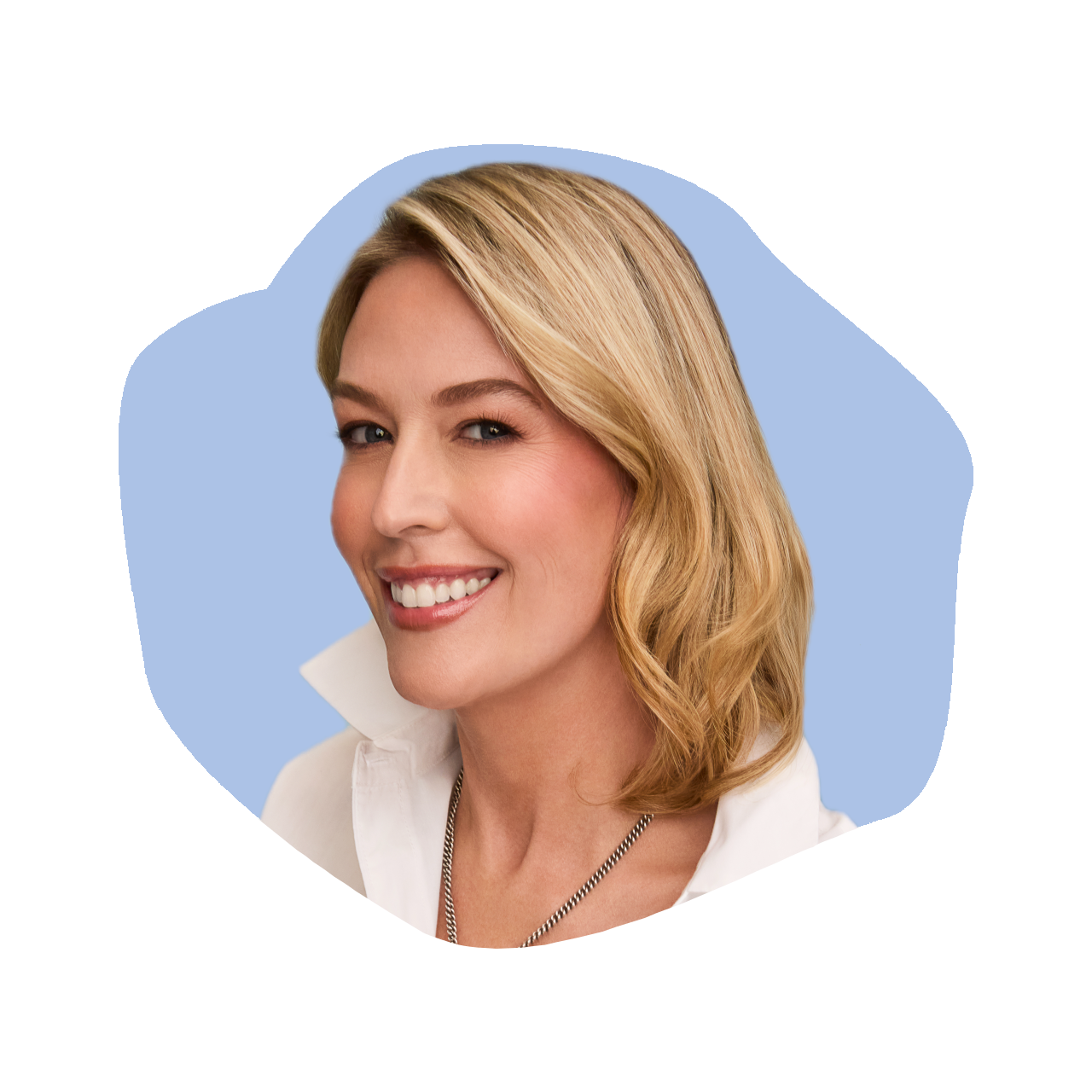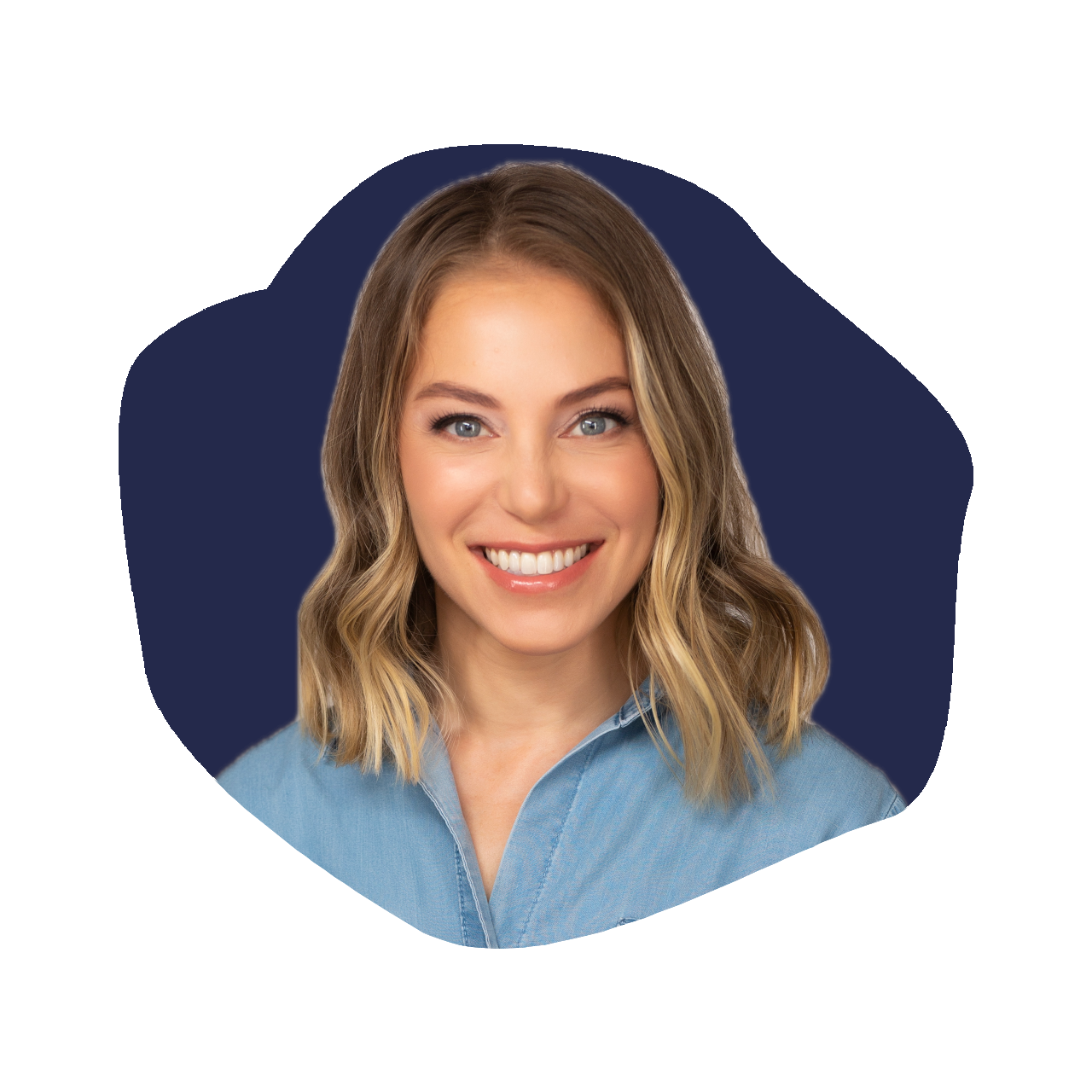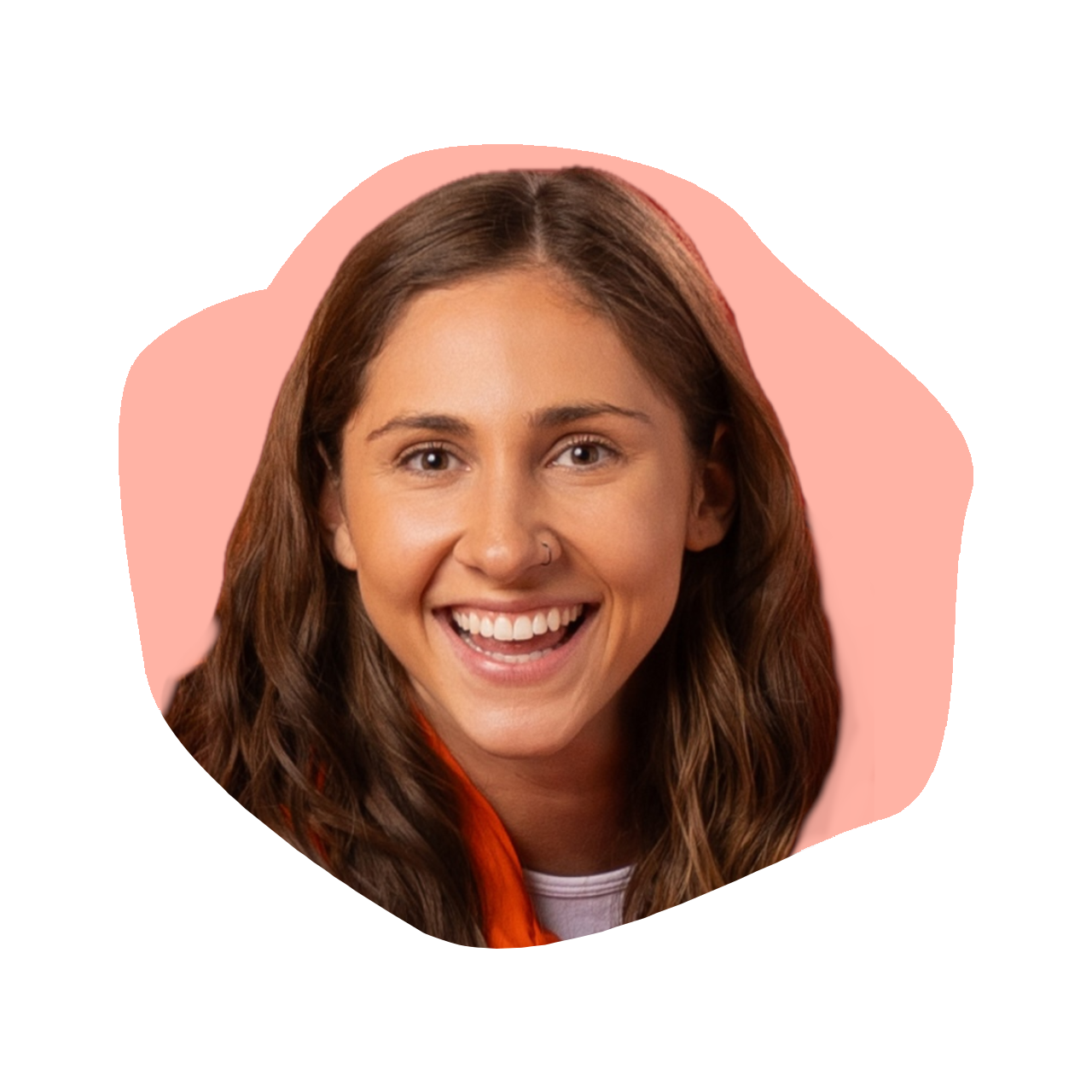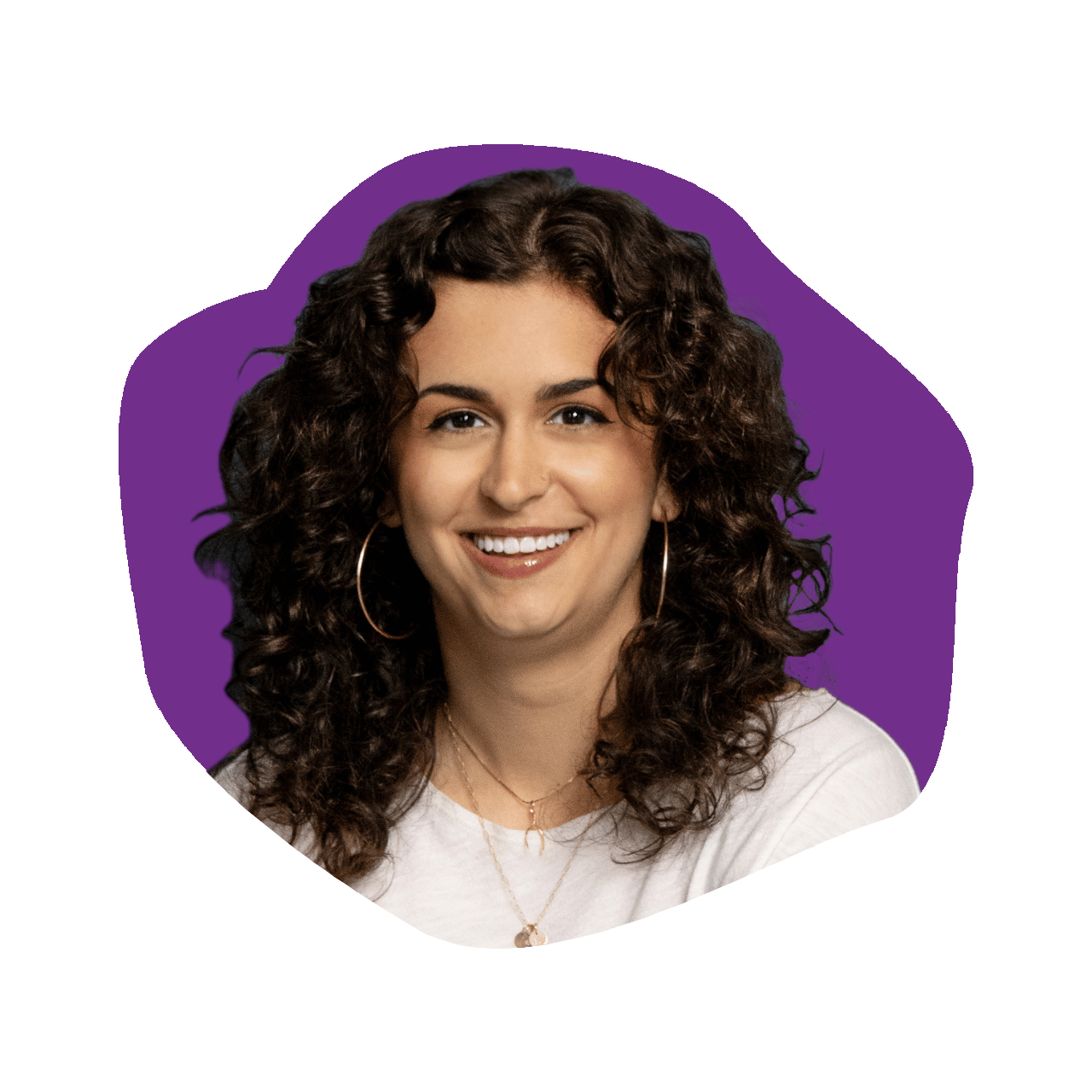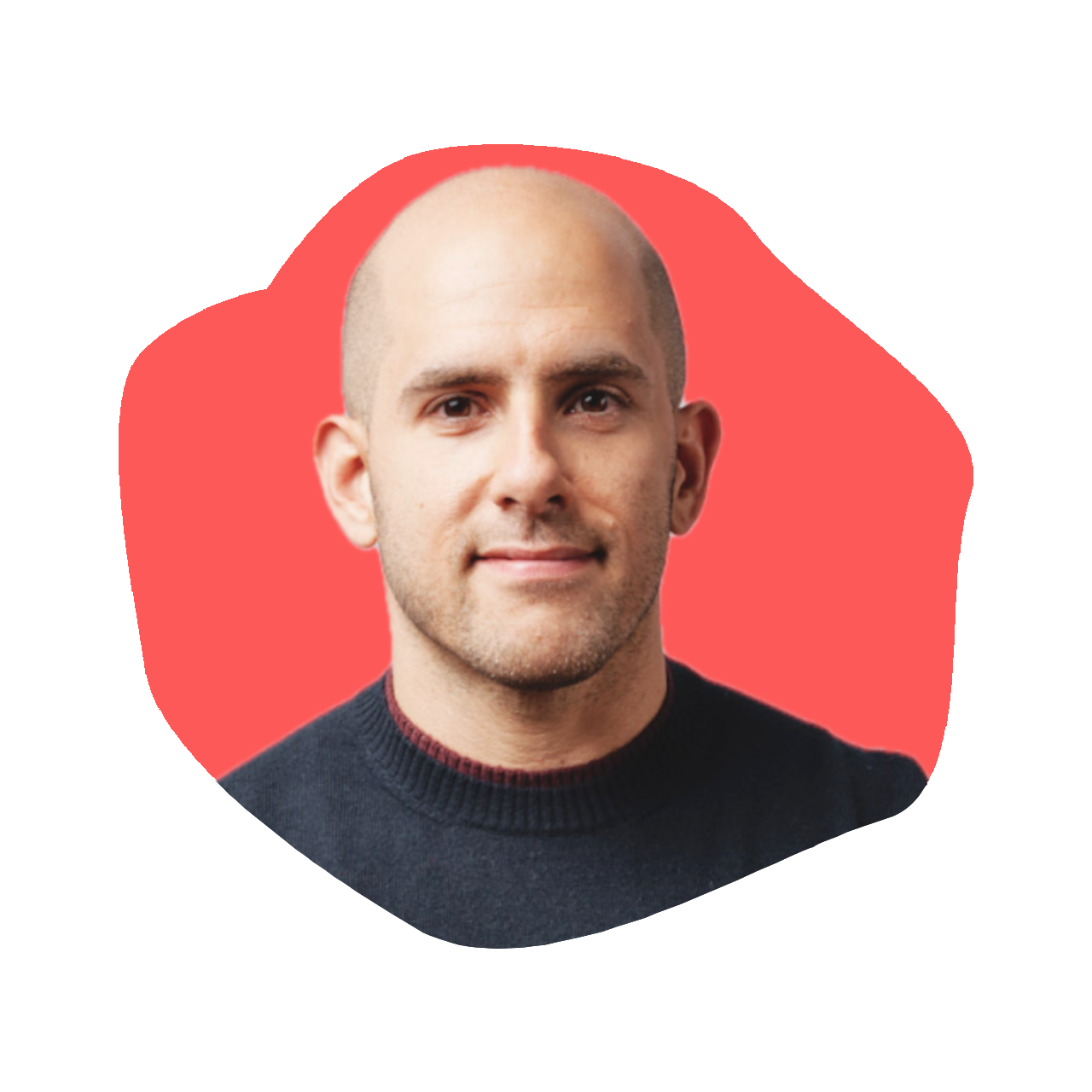Sydney Forbes: Co-Founder & CEO Tonsil Tech
Episode 551
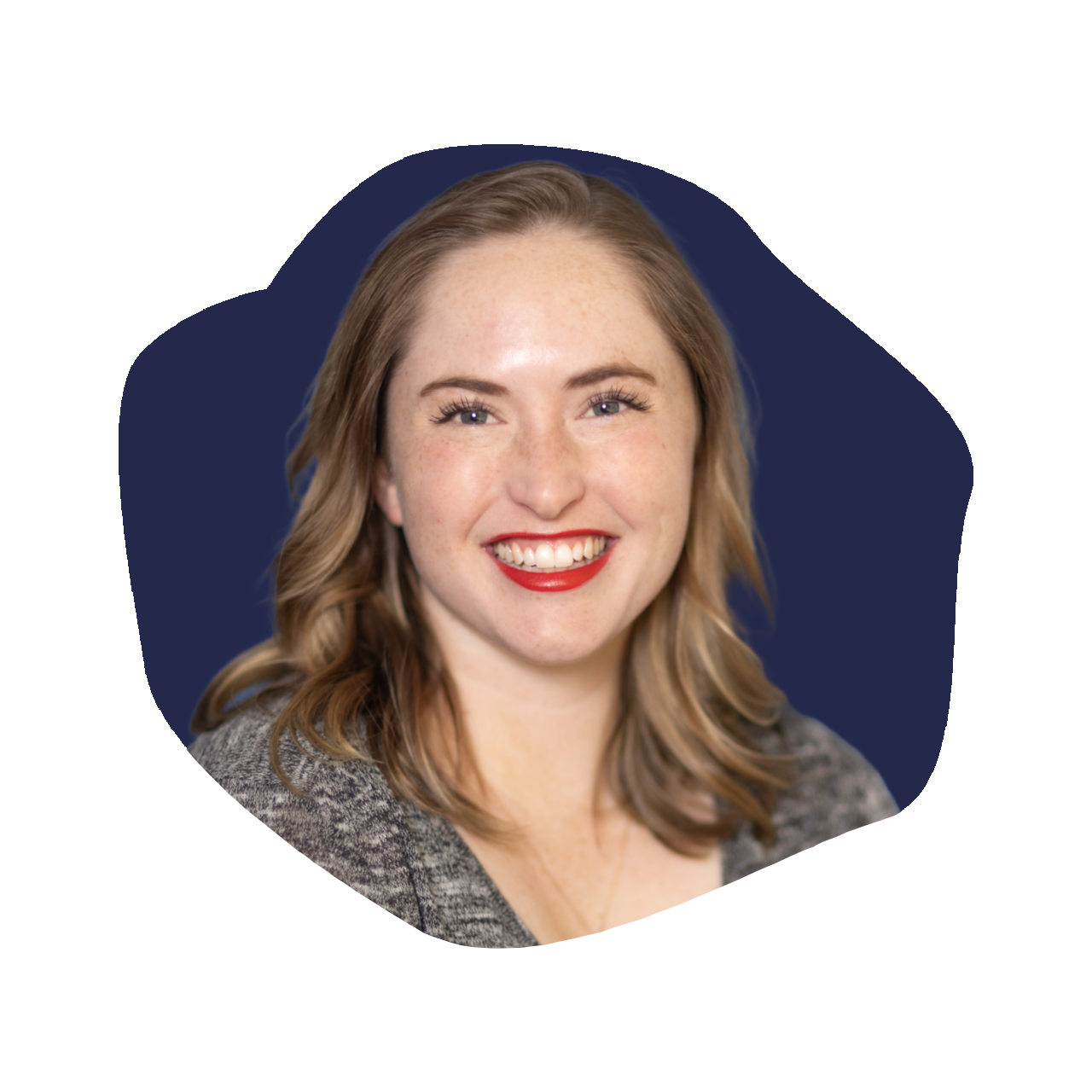
Sydney Forbes, Co-Founder & CEO of Tonsil Tech, shares more about developing a product and a company in the world of oral care, an affordable at-home solution for tonsil stones. Sydney shares how leveraging her expertise in bioengineering and medical device manufacturing helped her to develop this solution for a surprisingly common problem that many consumers are frustrated by, but have learned to live with. No more! We hear what it is like to pioneer an idea for a solution in an industry, the challenges she has faced as well as the terrific experience being part of the Target Forward Founders program. Finally, her advice to aspiring entrepreneurs, encouraging them to prioritize, take the leap, and be open to making changes along the way is inspiring. You are going to love this episode and I can’t wait for you to listen. Now on the #TheKaraGoldinShow.
Resources from
this episode:
Enjoying this episode of #TheKaraGoldinShow? Let Kara know by clicking on the links below and sending her a quick shout-out on social!
Follow Kara on LinkedIn – Instagram – X – Facebook – TikTok – YouTube – Threads
Have a question for Kara about one of our episodes? Reach out to Kara directly at [email protected]
To learn more about Sydney Forbes and Tonsil Tech:
https://www.linkedin.com/in/sydneyquintoncox/
https://www.linkedin.com/company/tonsil-tech/
https://www.instagram.com/tonsil.tech/
https://www.facebook.com/tonsiltech/
https://www.tiktok.com/@tonsiltech
https://www.tonsiltech.com
Transcript
Kara Goldin 0:00
I am unwilling to give up that I will start over from scratch as many times as it takes to get where I want to be I want to be you just want to make sure you will get knocked down but just make sure you don’t get knocked down knocked out. So your only choice should be go focus on what you can control control control. Hi, everyone and welcome to the Kara Goldin show. Join me each week for inspiring conversations with some of the world’s greatest leaders. We’ll talk with founders, entrepreneurs, CEOs, and really some of the most interesting people of our time. Can’t wait to get started. Let’s go. Let’s go. Hi, everyone. It’s Kara Goldin from the Kara Goldin show. And I’m so excited to have our next guest. Here we at the Kara Goldin show, we dive into stories of innovators and trailblazers who are reshaping industries and tackling challenges that they have solves for So today, I’m thrilled to welcome Sydney Forbes who is the co founder and CEO of Tonsil Tech. And Sydney is tackling a surprisingly common yet often overlooked problem in oral health care, tonsil stones. So by leveraging her expertise in bio engineering and medical device manufacturing, Sydney has spearheaded the creation of a an affordable at home solution. And I cannot even wait to get into how she decided to start this company, how she’s pioneering a new path, a new category within an industry. And this is something that is going to help lots and lots of people, as lots of people are impacted by it. So I’m really excited about it, and can’t wait to hear more. So let’s get started. Welcome, Cindy.
Sydney Forbes 1:54
Thank you so much for having me. Really appreciate it. And looking forward to this conversation. Absolutely.
Kara Goldin 1:59
So it’s so great to have you on the show. And when I heard your PR person connected me to you, and when I heard about it, I was like, wow, this is amazing. I mean, I have a family of six. And I have a couple of people in my family who have had a real issue with this. And they are your newest fans, so they’re like, amazing. Super, super great. So and they’re finicky people too. So you, you definitely wooed them for sure. And they’ve told a lot of people about your product. So I read that you studied bio engineering in college, how did that lead to your interest in creating Tonsil Tech? Yeah,
Sydney Forbes 2:42
absolutely. I think hearing everyone’s different journeys, about how they ended up in entrepreneurship and founding their startups is always super interesting, because everyone has such a different way. And for us, we were asked a really simple question in college, it was actually what are 10 things in the medical field? Do you want to change and we all went on our way. And then we came back a week later for class and turns out tonsil stones were actually at the top of my list and my co founders and we were just like, Wait, like you get them? Like I get them to like, we hadn’t really heard people talking about this issue. And I think when we looked at it and started to see just how common it was, it really became something where it’s like, okay, we know we can make an impact on this. And if there are people who start to look at this issue, people won’t be using their fingers and value things and queued up sticking all sorts of different things down the back of their throats. And it’s been a really fun and interesting journey ever since.
Kara Goldin 3:35
That’s awesome. So was this a personal experience that you that you had had with tonsil stones? If you don’t mind? If I ask? Why?
Sydney Forbes 3:44
Absolutely. I mean, it’s about a 10 to 20% of the US population. So it’s really common. It’s especially common in young people. They stopped doing routine tonsillectomies in the 1980s. And so you have this really drastic divide between people who have their tonsils and people who don’t. And so I’m definitely one of those younger people that gets tonsil stones. And I think that with a bioengineering background was just like, we can find a way to solve this. And if it’s driving us nuts, we know it’s driving everyone else crazy, too. So tonsil stones are really interesting, because they absolutely smell terrible. And people have a real true hatred for them, which is rather uncommon, like people don’t like hair on their body, or they might not like plaque on their teeth, but people hate tonsil stones. And so I think it’s been really beautiful to be able to change something in people’s lives and make it so that it’s just something that takes 30 seconds or a minute instead of 15 minutes and really being able to give them back their confidence to go do all the different things they want to like. This especially impacts women, women who are dating and relationships. And so we’ve heard so many different fun and interesting stories around this topic that it just makes it really kind of like a fun and creative endeavor. To go on, that’s
Kara Goldin 5:01
awesome. So can you explain what tonsil stones are for those who might not be familiar with them or have been curious about them?
Sydney Forbes 5:09
Absolutely. So tonsil stones are the calcification of food and mucus and bacteria that form in the pits of tonsils. So if you want have your tonsils to, if you’d put something in your tonsils, you might get tonsil stones. And one of the misconceptions, especially for men and older men are that tonsil stones look more like kidney stones. They’re not like they’re this really soft kind of off white calcification. You could squish it in your hands. It comes in all sorts of different shapes. They kind of look like little yellow nerds, they’re bumpy, they’re weird. And they smell terrible. That’s how you know it’s one. It’s because it literally smells like rotting eggs, and it’s very pungent. And so yeah, that’s what a console stone is. If you’ve carved one up, if you felt something uncomfortable in the back of your throat, then you get tonsil stones. And you might actually get them more often than you realize.
Kara Goldin 5:57
So interesting. So what was the pivotal moment that made you decide like, I’ve got to go and tackle this? I mean, it’s one thing to have a problem. And you probably looked on the shelves for this product and thought it has to be out there. As you mentioned, you know, there’s people that are using whatever combined bobby pins in order to create I mean, I’m sure there’s really interesting tools out there probably on tick tock, I just haven’t found them. But it’s or I should say, at home made tools of some sort. So what was the moment that you said, You know what, I just have to go do this.
Sydney Forbes 6:36
So I think we actually set down the idea multiple times, because after college, we had actually gone down to the bay area to work in a farm I 3d printed dental devices, medical devices, contact lenses, like my co founder and I we’ve done all sorts of different things down there. But it wasn’t really until COVID Hit actually, we were one of the first counties to kind of go into lockdown. And we were, we had picked up the idea, put it down and picked it up, put it down. And I think it’s the ideas that still non you years later, like I like there still isn’t something for this, that eventually you get to the point where it’s like that tipping point. And I think for us, it was really that time of like having more time at home, we were staring down the back of each other’s throats going through this giant box of all the different things we had tried and saying, you know, nothing is good enough, nothing respects this issue, like whether they have like they’re too short, they have detachable parts going in the back of your throat. It’s like, please don’t do that. And so it really became this moment of like, we could truly impact millions of people’s lives if we can figure out how to do this better. And so that’s kind of when it all started. It all started in 2020.
Kara Goldin 7:43
What were you doing before Tonsil Tech? Yeah,
Sydney Forbes 7:47
so I had worked in pharma in 3d printed medical devices, specifically in the dental field. And so when we were trying to figure out what our first product looked like, when we decided that we wanted it to actually be a physical tool to go in and remove these stones, we actually ended up using 3d printing to do that. So we would iterate through different designs, test them out, give them to other people, we wanted to hear their feedback. And actually, some of the first products that we sold on our website were 3d printed products that were ready to sell. And then it wasn’t until we eventually figured out injection molding, we changed a few additional aspects of it. And then we were really able to get to the point of like, being able to scale because individual tools were very expensive when they were 3d printed. And so it was definitely an important transition to get over to injection molding.
Kara Goldin 8:35
And so no one was doing this when you thought about coming out. I mean, they had, you know, their own homemade products, but nobody had actually done this. Yeah,
Sydney Forbes 8:44
I mean, if people are using like different like small detachable earwax removal tools, or they’re using like water placers that people describe as like power washers for their tonsils, like super painful, just like things that were never meant to go in the back of your throat essentially. And we really thought there had to be a safer and easier and a faster way to do it. Most people spend between like 10 to 20 minutes in the bathroom, sticking all sorts of things back in their throat and so we were able to create a product that helps him remove it in like 30 seconds to a minute like it’s a really quick process now and it takes away so much of that frustration. And I think that what we’ve realized is that when you design the for tonsils and tonsil stones from the very beginning and like that’s your intended product, it just looks so different than anything else that’s currently on the market and so yeah, people have this like moment of like, like excitement when they get one out like they can see it in there. And it’s like okay, cool. Like it worked like it really. People have actually kind of like even started to like the process, which I think is kind of interesting, and we’ve like really shifted it from something people hate to something people find like kind of grossly satisfying. That’s
Kara Goldin 9:58
That’s awesome. So can you share the journey of developing Tonsil Tech? I mean, you talked about COVID was kind of the time when you decided it’s, you know, really going to, I’ve got to go and do this. But how many SKUs? Like, how did you actually figure out how to create these products, I guess you were doing something and you had sort of an idea of how to develop products, but you hadn’t done your own. So I’m sure that’s a little bit different.
Sydney Forbes 10:26
Definitely on end than my own, we actually like the very first part of the process was joining a startup program, actually out of Oregon State University. So a lot of universities have different startup programs, we went to ours, and we were like, hey, we want to join, typically, they had all been in person, but we were actually able to do it remotely. And so that was super cool. We were doing that down in the Bay Area, being a part of this program, learning to iterate, doing different interviews, that’s really how it kind of all started. And then for the actual manufacturing process, we have gone through a number of different interviews and surveys with people trying to understand what was their tonsil stone experience, like even. And part of what we found out is that people actually have different sized tonsil pits, openings, they have different size tonsil stones, like you really need a fair amount of variety to what you’re doing. And so, especially in the beginning, when someone’s starting to move, their stones are going to be bigger, and then when they start to like, let’s say they’re removing them twice a month, they start to change to weekly, those stones are gonna start to get smaller and smaller. And so that’s why the different sizes became so important. And we were able to really kind of test what people wanted and needed with that 3d printing. And so that was super helpful and awesome. And I’m so grateful to that technology to kind of like help us get off the ground, because injection molds are expensive. And we wanted to be really sure that we had something that worked before we took that what felt like a very big step in our early 20s. Yeah,
Kara Goldin 12:01
definitely. So what was like the biggest challenge that you faced and creating this product? I mean, is this FDA approved as as well.
Sydney Forbes 12:11
So it’s actually not FDA approved, we fall under the general wellness category, because this actually impacts more of self esteem, it doesn’t lead to medically diagnosed disease in the same way. And so in the beginning, that actually probably is one of our biggest challenges. We’ve spent so much time thinking from such a medical perspective from that bio engineering background that like, oh, like, what’s our FDA process? Like? How are we going to go through all of these different pieces. And when we eventually found the general wellness category, it was like, Oh, like this finally starts to make sense. Why in the FDA category, not seeing anything for console stones. And it’s because that’s not what people are currently using. And so now we’re a general wellness category, we were able to start selling pretty quickly. And we definitely try to make sure that we still have really high quality standards in place to make sure that like, we still feel comfortable, like as bioengineers, putting this product out there. And we’d love to be FDA class one approved in the future. And so we’ll definitely plan to do that. So
Kara Goldin 13:13
FDA class one, what is that exactly? For those who are not familiar with that? You know, so
Sydney Forbes 13:19
that’s like your toothbrush. That’s like what you typically find in oral care aisle. And so for us, like we spent a lot of time trying to figure out like, are we more of a medical device? Are we more of a consumer product? And I think at this point, we use, like, we’ve tried so many different routes. And I think we’ve eventually realized that we fit more into the CPG category. And that’s been really exciting and kind of fun to do, because it’s it’s a very different style. And so that’s what we’re working on now and getting into physical retail. Yeah,
Kara Goldin 13:52
I would think would be easier, right than actually dealing with the FDA approval. And is there a reason why you would want it to be FDA class one?
Sydney Forbes 14:03
Yeah. So one of the reasons is that in a dental office, if we want them to be able to use this on their patients and be able to charge insurance, and kind of go through that whole process, we would want it to be FDA registered. Whereas if it’s being used at home by an individual for a self esteem related issue, then it can be considered general wellness. So we have these different classifications so we can go into depending on what our objective is, got,
Kara Goldin 14:32
it seems like Tonsil Tech aims to educate right as as well as, I mean, there’s so many questions, and I certainly I founded a water company that I was, you know, tastes great. But in addition, there’s a lot of education around it right trying to get people to really understand that their current diet drink doesn’t or I should say does have sweeteners in it. I versus and unsweetened, non sweetened wherever you want to call it. So how do you balance these two aspects? Right? And? I mean, it’s a hard question, right? Like, how do you get people to really, you know, want to try your product, but then also, you’ve got to spend time educating, and especially when you’re the only one out there that’s kind of really talking about this right now. That’s
Sydney Forbes 15:23
a huge piece, education is massive for us. And it’s really somewhere that we want to spend even more time and energy getting kind of the word out about it. One of the number one things that we hear from people is that they thought they were the only person with tonsil stones. And so even just getting that message out there that like, not only do you have tonsil stones, but like one in 10, at least one in 10 other people around, you will also have them. And once you start to have those conversations, people will really open up there are a lot of like really kind of like funny and interesting anecdotes and stories. And I think that it’s making it clear that this is an issue that more people are experiencing will really help with that self esteem piece as well. And that there are there are products that are actually specifically designed for this, like you don’t have to put your fingers in the back of your throat anymore. You don’t have to use a bobby pin. And so really educating people that there is a better way to do this. And then there’s also the whole aspect of like educating dentists that like hey, there’s a finally a product like your dentists can see that you have tonsil stones in your X rays, they can see that you have tonsil stones, maybe they can see them in the back of your throat, that they can definitely smell them like it is a very obvious smell. So your dentist, your doctors, the people around you, they know that you have this issue. But in the past, dentists haven’t necessarily wanted to recommend anything. And because there wasn’t really a good product out there. And so that is now shifting. So instead of a dentist saying hey, like maybe try to find something on Amazon, like an earwax removal tool, it’s like no, there’s actually something that’s specifically been designed to be long enough and safe enough to go in the back of your throat. Like that’s a huge and massive shift and change in this industry. That has only happened in the past few years since we’ve been here. And so really helping with that education piece. Being in physical retail and people walking down an oral care aisle, seeing something that calls out tonsil stones as well. Also really helps with that education piece of like, oh, other people have this too. I’m not the only person or my family is not the only family dealing with this. And there are a lot of like really fabulous stories of people saying Oh, like my family didn’t know what to call it, but like we call them throat peanuts. And it’s like, oh, okay, well, I just a lot of really kind of like fun and interesting pieces to this topic. But yeah, there’s a lot of education to come in. There’s definitely generational divides and how they talk about it, too. So that’s something we’re all trying to take into consideration. So
Kara Goldin 17:58
interesting. So if somebody doesn’t have their tonsils anymore, would they have a need for Tonsil Tech?
Sydney Forbes 18:05
I know it’s very unlikely. Some people who have had tonsillectomies might still get tonsil stones. But they typically don’t like it’s pretty rare for that to happen, but it still can and it really does piss people off. And that happens when they’ve gone and gotten a tonsillectomy and they still get tonsil stones. They’re very unhappy. But for most people who have gotten their tonsils removed, no, they typically should not be getting tonsil stones.
Kara Goldin 18:31
So interesting. So being an entrepreneur is super tough. You know, looking back, can you share any moments that made you particularly proud? You mentioned, you know, you’ve heard many stories from consumers? Is there one that kind of stands out that maybe on those toughest days of, you know, building, Tonsil Tech, where things are not going exactly the way you want that you thought, gosh, you know, this is why I’m doing it?
Sydney Forbes 19:01
Yeah, absolutely. I mean, it’s definitely the stories people share with us whether it’s someone going on a date or something like that. But I think the biggest one that is like, very heartfelt for me is that we were my co founder and I, we were always joking. Like, oh, like we should be able to find something like like this and target like we’re so annoyed. Like, it’s our favorite place. Like we want to go down the aisles, we would just like it was in between our houses in the Bay Area. And we would just meet up at Target and go shopping like it was just something we love doing. And then in 2023 last year, we actually ended up getting into the target for our founders program, a cohort for it and like there were 29 of us, I think 29 or 30 of us and we had it we had applied at least two or three times and when we finally got in it was just this massive moment of like oh my gosh, like this is so cool. Like this is literally why we are doing this we are trying to create more accessibility to tonsil stone removal tools and kind of like create more awareness and to have target acknowledged And what we’re doing was, was really awesome. That was that was super cool.
Kara Goldin 20:03
That’s amazing. So have you raised money thus far for Title tech? Yeah,
Sydney Forbes 20:10
we raised a little bit in the beginning, we’ve really kind of gone on a different journey through this process. And so we raised about 350k, to date. So we definitely haven’t gone out and raised millions. But I think that we have taken a really interesting strategy through this piece, we also kind of, in a way, stumbled into VC investment. And we’ve never ended up doing our friends and family round, like we really had a unique way of going about this, I would say, and then we ended up signing a partnership deal that’s helping us with getting into dental. So we haven’t done this the normal way for sure. And I think everyone kind of has a different story and way that they go about it. And we’ve we’ve really found our own. So that’s, that’s been an exciting piece.
Kara Goldin 20:56
That’s awesome. Do you think you will go and raise more money, more capital in order to really blow this up? It
Sydney Forbes 21:03
depends on what our goal is. I think if we’re trying to go dental and Education First, we might wait to on it going and raising more capital, if we want to go more physical retail and like go get into every single store, then yes, we would definitely need a lot more capital for that. But we do have some fun things kind of on their horizon. But for now, we’re not raising at this exact point in time.
Kara Goldin 21:28
So when you think about advice that you would give to other entrepreneurs, maybe it’s somebody is sitting inside of a large company that is sitting on this idea. As you were thinking like, someone’s got to be doing this idea, I just haven’t found the right store or not doing the right search on Amazon or on on the internet to find it. So what would you say to those people like who are thinking, like, I’ve got to go do it? But this is gonna be way too hard. I don’t know enough. I’m not old enough. I’m not, you know, I don’t have the capital, whatever it is, what would you say to those people?
Sydney Forbes 22:09
Yeah, I’d say if you’re at a big company, and you are thinking about this problem that you want to solve, and like, it keeps coming up, and you’re like, wow, I really wish someone would work on that. Just know that like, it really takes you having the courage to step up and take on that challenge. Like you can’t expect other people to do it. And so if you’re having this problem, it probably means other people are too. And the amount of impact you can have by starting a company versus being one of 1000, or one of 100,000 in the company. It’s a massive difference. And yes, like you will sleep breathe, like when you’re showering, you will be thinking about your company and all these different pieces. Like it is such a different experience. But it is also incredibly eye opening. And you will learn so much about just like business as a whole, every step along the way. You’ll fall you’ll get back up again, you’ll figure it out. But I think it’s it’s really about when you’re taking those first steps looking at okay, what is my absolute priority learning to prioritize, and wherever you’re working, whatever you’re doing, learn that first, because it’s going to become incredibly important when you’re being pulled in 100 different directions. And so highly recommend learning to prioritize, and then just knowing that you will never be ready to take that jump, it is really hard to leave a Bay Area salary is really hard to leave a stable job with health care, all the different things you could need. But eventually you will reach the point where you just know you can’t stay at your current situation any longer. And you you’re just ready to take that leap. Sometimes you’re pushed into it. And that’s okay, everyone that comes to it from a different way. And just knowing that you don’t have to do it at this exact moment in time, you could do it five years from now, or you could do it a year from now, I think it’s really about finding the right kind of timing within your life and just knowing that it’ll never be perfect.
Kara Goldin 24:11
You just came out with new packaging that you sent to me and which is amazing. And there’s three different sizes, right? And in the product. It’s It’s really terrific. I think it’s a great example of you just have to get started, right? Somehow somewhere to get data to get the consumers see what the consumers are going to say. Do you do you feel like how long did it take you to kind of make that decision to go ahead and change because I think often people are like, Okay, I gotta get my product out the door. It’s got to be perfect. I always tell people it’s got to be safe, right for sure. And it’s got, you know, tastes good if you’ve got food, but it’s but more than anything, I think, you know, you’re gonna you’re gonna see different things in your product. But you’re going to maybe it’s time in your product, but maybe it’s your packaging that you’re going to need to change or add or in some way, so what how long was the period before you actually went ahead and changed. So
Sydney Forbes 25:12
we had been working on a change for a while actually, and having some different delays in manufacturing, and especially around a light where we just like weren’t having the quality that we were wanting, we were trading one, we were solving one problem and changing it for another. And I was like, okay, like, we could either keep going down this path that seems pretty slow. Or we could make actually a pretty quick and immediate shift and like, go back to what we do best, which, honestly, I think if for any entrepreneur out there, it’s like, go back to what you know how to do best and what you are excellent at what you can control. And so for us, that was our tool. So that’s how we ended up back at the kit with three of them. I’m really happy about it. I think it’ll be better for physical retail it the whole look and feel ended up changing. Yeah, there was so much change. And it actually happened relatively quickly, because you have to move quickly when you’re doing these things. Yeah. So yeah, for us, it was within a few months of like, okay, we’re going to make the change. We’re not going to stick with our original product offering. We’re going to update it. We’re going to change your packaging, look, feel everything. And so yeah, it ended up being pretty quick at the beginning of this year and the end of last year, and then we ended up getting our new packaging, just last month. So super excited, like, kind of make all those shifts and change. And yeah, building a startup. It’s a roller coaster, for sure. But it’s one that is exciting both on the ups and the downs.
Kara Goldin 26:47
Yeah, definitely. Well, Sydney, Forbes, co founder and CEO of Tonsil Tech, we will have all the info in the show notes. And you’re getting into more and more retailers. You’re obviously currently available online too, but super excited for your future and everyone needs to get their hands on Tonsil Tech, especially if you have more than one person in your house. It’s pretty likely that somebody’s got an issue with this. So thank you again, Sydney. Really appreciate it. And thanks, everyone for listening. Thank you. Thanks again for listening to the Kara Goldin show. If you would, please give us a review. And feel free to share this podcast with others who would benefit and of course, feel free to subscribe so you don’t miss a single episode of our podcast. Just a reminder that I can be found on all platforms at Kara Goldin. I would love to hear from you too, so feel free to DM me. And if you want to hear more about my journey, I hope you will have a listen or pick up a copy of my Wall Street Journal, best selling book undaunted, where I share more about my journey including founding and building hint. We are here every Monday, Wednesday and Friday. Thanks for listening and goodbye for now.





